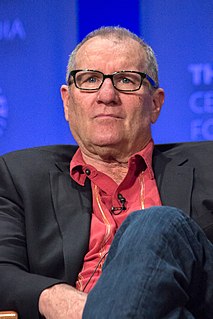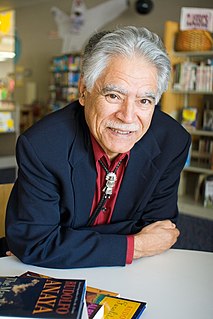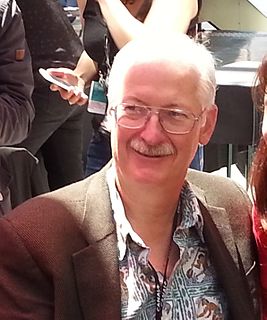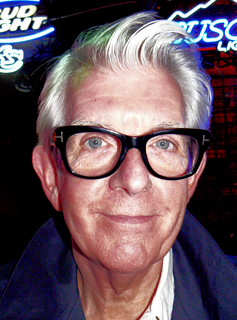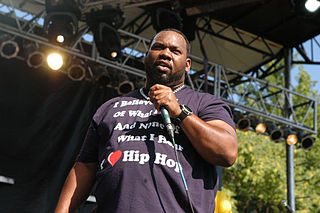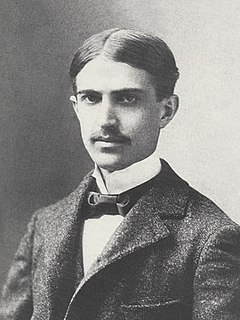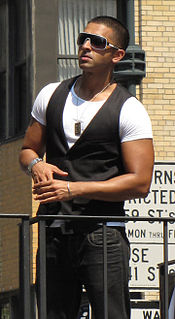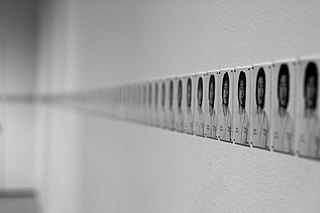A Quote by Aasif Mandvi
My father got a job at Bradford University in textiles. And he came for - I guess, you know, why do people immigrate? - like, for a better life to find, you know, a new world. And, you know, I think he always - he saw it as an opportunity. And so yeah so we came to this coal mining town in the north of England and that's where I grew up.
Related Quotes
At least I like to keep it the same. That's why I've got all the same friends. That's why I go back to Leeds as much as possible. I don't know if you know much about England, but Yorkshire is a very sobering place. In the North. It's very gritty. Old mining villages. And people don't really care about celebrities up there. And it's great. And that's why I get back there whenever I can. 'Cause it keeps me very grounded, and it keeps my life very normal, whatever that is.
I used to say things like, 'My name's not Al (Bundy), you know?' Not to the press, but to fans. 'My name is actually Ed.' I'd find myself saying that, and I'd think, 'Who do you think they think you are? They only know you from that!' And finally I just got...I don't know, I guess a switch went on for me, and I realized, 'This was the greatest job that you've ever had in your life. Why are you acting like an asshole?' So from that minute on, I kind of...well, I hate the word 'embraced,' but I just kind of went, 'Yeah, okay.' 'So you're Al, right?' 'Yep!'
You know, growing up my - you know, I came from Compton, Calif., and, you know, it was a place where a lot of people did come out when a lot of people stayed. So I've been able to see the top and the bottom of life, and I think that balances you if you allow it to and if you remember where you came from.
Stop and think of what happened in America. The melting pot, yeah, it happened. Stop and think of what happened, from the first days of the founding. You have to go back to the Pilgrims. You have to include the Pilgrims in the founding. Why they came. What they learned on the way. What they learned after they got here. The Pilgrims, like everybody else, tried to establish a socialist collective. Bombed out. Didn't work. We know this, the governor wrote about it himself, William Bradford.
I loved Road Warrior the first time. I saw The Road Warrior before I saw Mad Max, you know, I saw it in reverse order. And so I was, I've always been a fan of George Miller. This sequence I think got storyboarded after Fury Road came out I think as I recall. So I think, you know, we were inspired [making Maora].
You know where the people who killed people in San Bernardino came from. You know where people who did 9/11 came from. You know where the people who did Paris came from, where they transited, where they went. None of them even set foot in Iran. So why are you punishing people who are visiting Iran for that? . . . We're not going to radicalize them. We never have. Your allies have radicalized people who visited.
You know, where have you - what have you been doing? You know, and you find yourself sitting next to Jesus, and he's rather an agreeable man. And you have an opportunity to say, so what went down then, you know, that night? And it's supposed to be like him just sort of telling you very conversationally. That was the idea I had. Whether it - whether it comes - came off or not, I don't know.
I know I am a human being. I can give myself to one year for a project. That is why I say I'm primitive in the way I work, especially compared to most artists. I came to New York in 1974, knowing that it is the art center of the world. But I didn't go to find people for my work. I do the work, and the people come to me, and I learn from them. That has always been my approach - to do the job first and then to respond to it after I finish and learn what people think about it. That's how I develop, and I'm more of an outsider in that way.
I was always restless, always a roving spirit. When I was a little child I was always running away. I never got very far, but they were always having to come and fetch me. Once when I was about six, my father came to get me somewhere I'd gone, and he told me later he'd asked me, "Why are you so restless? Why can't you stay here with us?" and I said to him, "I want to go and see the world. I want to know the world like the palm of my hand.
Grown people know that they do not always know the why of things, and even if they think they know, they do not know where and how they got the proof. Hence the irritation they show when children keep on demanding to know if a thing is so and how the grown folks got the proof of it. It is so troublesome because it is disturbing to the pigeonhole way of life.


